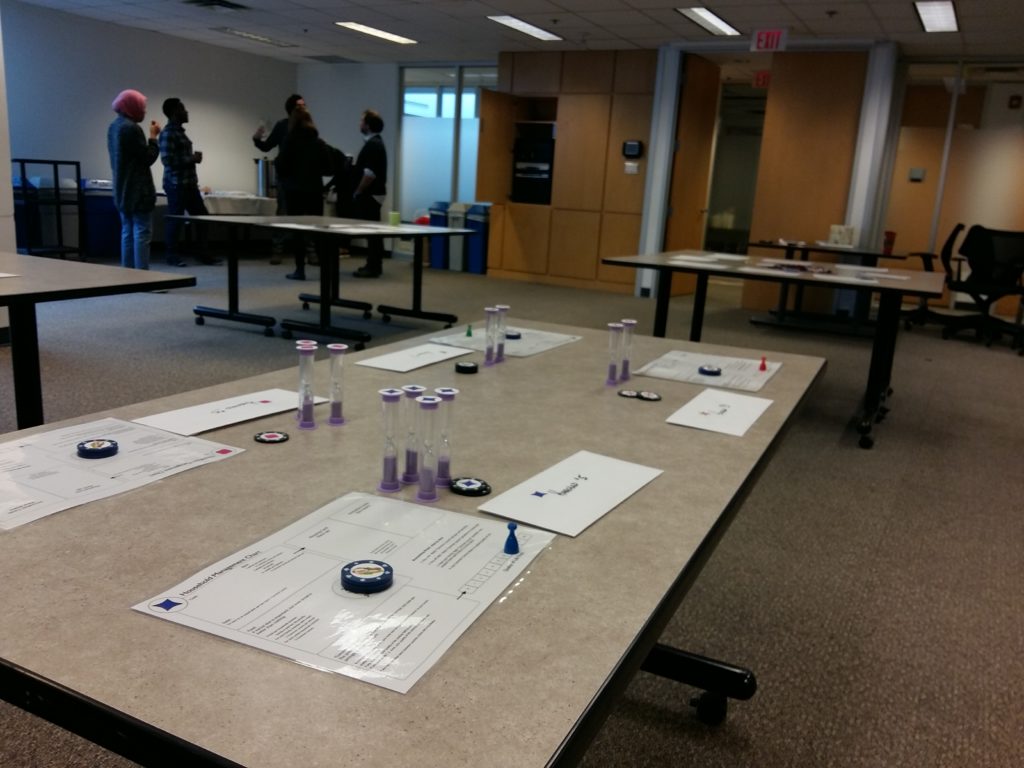
During the recent delivery of “The Day My Life Froze” at York University, LLST was privileged to be supported by Nicole Vassiliou, a volunteer with the Centre for Refugee Studies Student Caucus. Nicole is a Masters student at the Department of International Development at York University. She carried out her Masters research with refugees in Greece while completing an internship at a local NGO. Her thesis, titled Living on the Margins & Picking up the Pieces: NGO Response to the Greek Economic Crisis, Austerity Measures & Social Assistance, focuses on the effects of austerity measures, social assistance, civil society, tourism, culture, behavioral economics, capabilities theories, and future possibilities.
In addition to her great help, Nicole was able to participate in much of the training and simulation. She was kind enough to prepare a short reflection on her experience.
Read on:
“The Day My Life Froze” training and simulation was a fantastic way to understand the intentions, behaviours and motivations or different stakeholders within the context of urbanized refugees and humanitarian aid. As a second year Masters student I participated in the two day program and feel that I have gained much knowledge and understanding regarding the social issues that refugees and different stakeholders face.
On the first day of the two day program, theory regarding refugees and the motivations of different stakeholders was presented. Theory was broken down into three small units, all offering interactive activities to be completed in small groups or with partners. Real field images were used to supplement theory and the small activities, to allow us to better begin to see the realities of urbanized refugees and NGO response. In concluding the first day, a basic outline of the simulation was given and we were each able to select a role for the simulation the following day. Information demonstrated on the first day was quite helpful when engaging in the simulation on the second day. A key piece of knowledge was assessing the different motives of each role (NGO, donor and refugee). The simulation on the second day required that we assume our roles and complete tasks such as finding food, shelter, clothing, basic needs, along with “common luxuries” and registering for NGO assistance and the possibility of resettlement. The simulation demonstrated the realities of urbanized refugees quite well and in a respectful way. The simulation was followed by a debriefing, in which all students that participated were able to share their experience and reactions. It was the debriefing that was the most eye opening for me because you could begin to hear the realities of each person’s experience. The debrief was designed so that you could both express the feelings you experienced in playing your role within the simulation, as well as yourself, a student, explaining what you learned from the training.
As a student studying international development, I found the training particularly interesting and relevant to my research and the current global issues we face as societies. The program was very enlightening and I feel that this training would make a fantastic contribution to studies from a variety of fields, or to those with an interest on the experiences of refugees and humanitarian response. I wish this type of program had been available to me before my field research working with refugees abroad, as it provides a better understanding and empathy for stakeholders within the field. By participating in the training while writing my thesis, I found that many parallels can be drawn between my own experience and the program. The program has enriched my perspectives of not only my own work, but the world around me. I would highly recommend this program to my peers and encourage administrative staff within different faculties to consider incorporating it within their programs for students.
